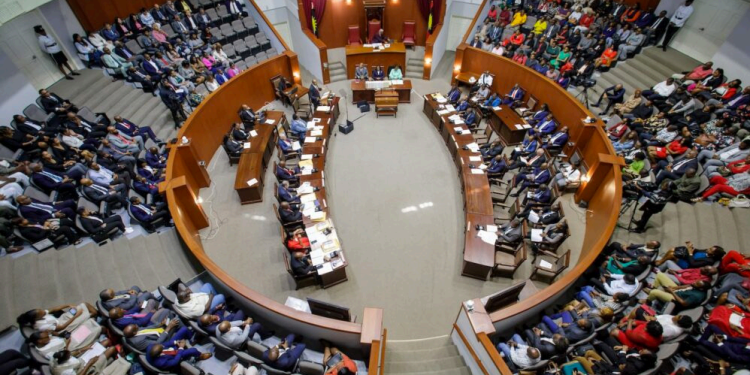The House of Representatives approved the Vehicles and Road Traffic (Amendment) Bill 2025, the measure through which the government will increase the fees charged annually for licencing of motor vehicles.
The mover of the bill, Prime Minister Gaston Browne revealed that the measure is necessary as the government wants to urgently address the mammoth task of repairing or reconstructing much of the country’s road network which has fallen into disrepair in recent times.
He said the government had entered into an arrangement with a consortium of local banks to provide funding for the road repairs of up to $100 million. However, the prime minister also gave assurances that the money will go towards the intended purpose; roadworks.
But there was strong pushback from members of the opposition with Opposition Leader, Jamale Pringle questioning the wisdom of placing additional funds into the hands of the Transport Board when that agency had not issued an audited statement of accounts even dating back when the UPP was the government.
Other members of the opposition beach were equally critical of the move emphasizing among other things that in the past contracts were awarded to individuals for road construction with any proper oversight.
The government bench however mounted a spirited rebuttal with Health Minister Sir Molwyn Joseph leading the charge calling the UPP as being guided by an overarching principle of ‘opposing’ even without taking into consideration the merits of proposals that the government may which to introduce.
He then went into a detailed list of the projects that the UPP had opposed in the past; the Education Levy, the construction of the Redcliffe Quay pier and the dredging of the harbor to accommodate larger cruise ships, the University of the West Indies FIC, the Heritage Quay complex and the Global Port agreement to name a few.
In his wrap up, PM Browne explained that there will be adjustment to how the monies collected by the ABTB are recorded and that this is being done in anticipation that the banks would require this as the negotiations proceed. Additionally, he noted that the government took into account the concerns of the public and it had readjusted the increase as a compromise.
However, he noted that the government may still have to subsidise the loan payments as the monies collected will likely fall short of the amount necessary to amortise the loan due to the expected smaller collections because of the adjustments.
The bill now goes to the Senate for its consideration.



